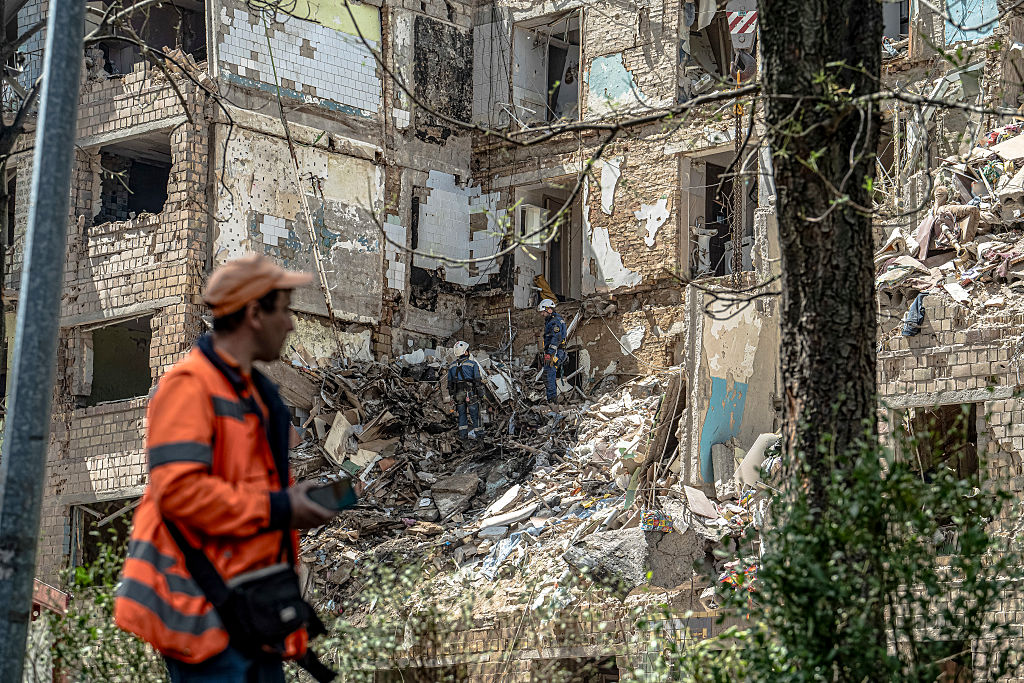A Ukrainian drone in late April hit the Alabuga Special Economic Zone in Russia’s Tatarstan region, where kamikaze drones are made by factory workers, many of them women from Africa. Although there were no reported casualties, several African women were wounded last year in a similar drone attack on the Alabuga factory, about 1,000 kilometers east of Moscow.
African women working at the factory may not have realized they would be working in a war zone when they applied for their jobs. Many responded to social media ads promising employment with good pay and a new life in Russia. The advertising photos showed women smiling as they cleaned floors and wearing hard hats while directing cranes at a factory in the Republic of Tatarstan, Russia.
The ads, targeting workers from countries such as Botswana, Ethiopia, Kenya, Nigeria, Rwanda, Sierra Leone, South Sudan and Uganda, included videos with upbeat music that showed African women visiting Tatarstan’s cultural sites or playing sports. They promoted a program called “Alabuga Start” that touted a free plane ticket to Europe and a well-paying job upon arrival.
The ads said Alabuga Start sought “talented people from all over the world,” especially women between 18 and 22. The ads also endorsed the benefits of a work-study program in fields such as catering or hospitality. In one video, an African woman arrives in Alabuga and begins work at a restaurant, where she waits on a young Russian man. She later returns to the restaurant as his pregnant wife.
According to Maxim Matusevich, a Russia-Africa expert and global history professor at Seton Hall University, the financial appeal to young unemployed Africans is understandable.
However, the vast majority of recruits are involved in manufacturing drones, according to the Global Initiative Against Transnational Organized Crime.
The drones are used by the Russian military to target Ukraine, that frequently , results in civilian deaths. On June 23, a Russian drone attack in northeastern Ukraine killed three civilians, including a 5-year-old boy, and injured six others, including two 17-year-old girls and a 12-year-old boy, The Washington Post reported.
African women are forced to manufacture drones under hazardous, grueling conditions and are paid much less than promised. One worker told The Associated Press the job was “a trap,” adding that the cost of accommodations, airfare, medical care and Russian-language classes were deducted from her salary. She said the African workers were treated “like donkeys.”
“I don’t think many [African women] know about the firm’s bad labor practices,” an Ethiopian woman, who canceled her Alabuga Start application after reading about the factory online, told The Economist.
The women also are forced to handle toxic materials, which is forbidden in Russian labor law, David Albright, founder of the Institute for Science and International Security, told VOA. Investigations by Protokol, a Russian independent media outlet, showed that the company also has a record of surveilling workers involved in drone manufacturing and keeping details about production secret.
The Alabuga facility manufactures up to 300 Iranian-style Shahed drones and their Russian-made variants daily. More than 6,000 of these drones were produced in Alabuga last year, along with thousands of decoy drones, Andrii Kovalenko, an official at Ukraine’s National Security and Defense Council, told The Kyiv Independent.
Since its 2022 launch, Alabuga Start has recruited about 350 women from more than 40 countries and aims to bring 8,500 more this year, Bloomberg reported. The workers are needed due to a labor shortage fueled by Russia’s war in Ukraine.
In a 2024 analysis, the Robert Lansing Institute for Global Threats and Democracies Studies said Russia was exploiting “not only Africa’s natural resources but also its people — victims of economic crises — through deception and restrictions on their freedom.”
“The lack of response from the governments of the African countries involved is striking,” according to the report, which characterized Russia’s recruitment efforts as human trafficking.
Interpol began investigating Alabuga Start for possible involvement in human trafficking after the company’s social media posts were brought to the organization’s attention.
Human trafficking involves the recruitment, transportation, transfer, harboring or receiving of people through force, fraud or deception, with the aim of exploiting them for profit, according to the United Nations Office on Drugs and Crime. Traffickers typically use fake promises of education and job opportunities to trick and coerce their victims.

